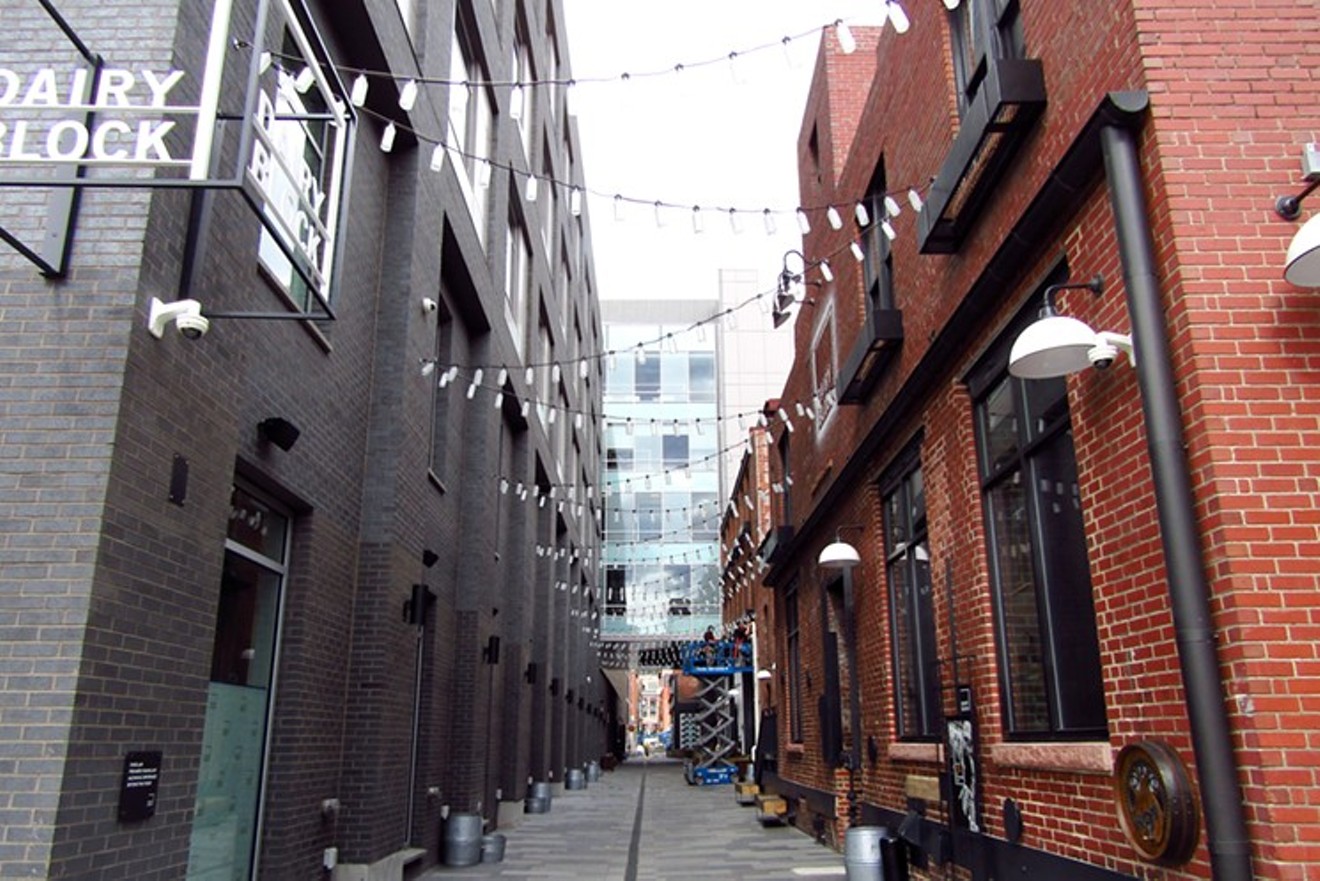Although a decade late to the game, Denver is finally ready to finalize rules for a five-year pilot program that will allow for the creation of common liquor consumption areas.
"People can get their sake from the Japanese restaurant and then their glass of wine from the Italian restaurant and then walk around in the common area," explains Ashley Kilroy, director of the Department of Excise and Licenses.
Once licensed by Kilroy's department, common consumption areas will allow bar or restaurant patrons within a set vicinity to mingle with each other in a common space while holding drinks purchased at establishments within the area. Under current Denver rules, patrons have to finish their drinks before leaving a venue.
Potential candidates for common consumption areas include McGregor Square next to Coors Field, Larimer Square, the Art District on Santa Fe, and the Great Hall at Denver International Airport.
Businesses interested in forming common consumption areas will have to band together to form a promotional association and then apply for both a common consumption area license and an entertainment district designation. Entertainment districts will be capped at 100 acres, and will also need to contain no fewer than 20,000 square feet of liquor-licensed establishments.
Denver City Council will be in charge of approving entertainment district applications, while Excise and Licenses will handle the actual licensing of the common consumption areas.
Aside from the licenses for regular common consumption areas, which will last for a year and be renewable annually, licenses for event common consumption areas will be available, good for fifteen days. At events with such licenses, people will be able to walk through an area and buy drinks from existing establishments rather than have to purchase alcohol from outside vendors, which is what is required now at events.
The Colorado Legislature legalized common consumption areas in 2011, and municipalities ranging from Glendale to Salida to Fort Collins to Aurora have since established their own programs, some of which have met with "great success," Kilroy says.
"At the same time, we want it to be a positive amenity for placemaking and community building," she adds. "This will not happen unless the community wants it. And it will not happen unless the neighbors want it."
So any Denver businesses that want to set up common consumption areas will have to engage with neighborhood organizations from the start. "We won’t even accept an application for a common consumption area unless the businesses show evidence of community support, with at least one registered neighborhood organization saying, 'Hey, we’re interested in looking at this,'" Kilroy notes.
Additionally, public hearings will be held for each common consumption area application.
After several false starts, the City of Denver had intended to roll out common consumption area licensing last summer, but the pandemic upended those plans.
"We put all of that work on hold because we had these other priorities like public health and economic recovery," Kilroy says.
If common consumption area rules are finalized this month and then approved by Denver City Council, groups could be applying for common consumption area licenses as early as July.
The Department of Excise and Licenses will hold a public hearing at 10 a.m. today, April 7, regarding the proposed rules for the program. Find out more here.
[
{
"name": "Air - MediumRectangle - Inline Content - Mobile Display Size",
"component": "12017618",
"insertPoint": "2",
"requiredCountToDisplay": "2"
},{
"name": "Editor Picks",
"component": "17242653",
"insertPoint": "4",
"requiredCountToDisplay": "1"
},{
"name": "Inline Links",
"component": "18838239",
"insertPoint": "8th",
"startingPoint": 8,
"requiredCountToDisplay": "7",
"maxInsertions": 25
},{
"name": "Air - MediumRectangle - Combo - Inline Content",
"component": "17261320",
"insertPoint": "8th",
"startingPoint": 8,
"requiredCountToDisplay": "7",
"maxInsertions": 25
},{
"name": "Inline Links",
"component": "18838239",
"insertPoint": "8th",
"startingPoint": 12,
"requiredCountToDisplay": "11",
"maxInsertions": 25
},{
"name": "Air - Leaderboard Tower - Combo - Inline Content",
"component": "17261321",
"insertPoint": "8th",
"startingPoint": 12,
"requiredCountToDisplay": "11",
"maxInsertions": 25
}
]












